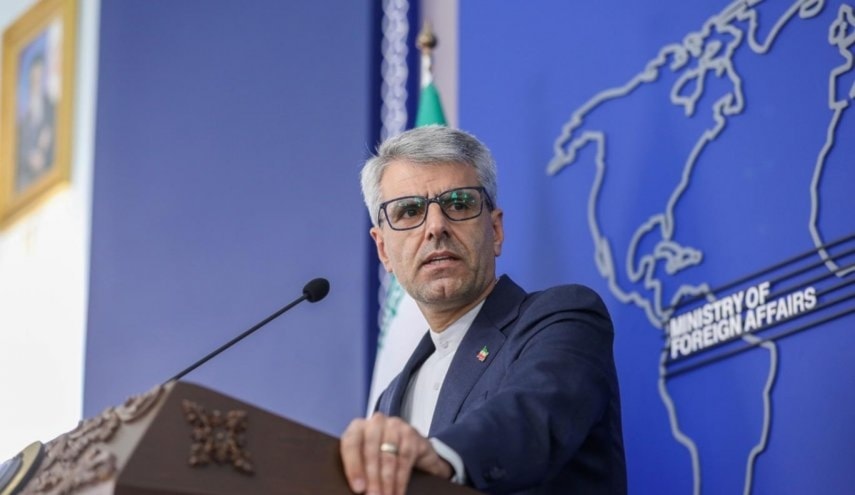Iran uncertain about participation in June 15 nuclear talks with US
Iran has not yet decided whether it will attend the upcoming nuclear talks with the US scheduled for June 15, according to Foreign Ministry spokesman Esmail Baghaei.
-

Spokesperson for Iran's Foreign Ministry Esmail Baghaei (Iran Foreign Ministry)
Tehran has not yet decided whether it will participate in the upcoming round of nuclear talks with the United States, scheduled for June 15, according to Iranian Foreign Ministry spokesman Esmail Baghaei.
Speaking to IRNA news agency on Saturday, Baghaei said, "It is still unclear what we will decide regarding Sunday [talks]."
The sixth round of indirect talks was set for Sunday, June 15, in Muscat, Oman. However, as a result of the Israeli aggression on Iran, reports circulated reading the possible cancellation of the nuclear talks.
Foreign Minister Abbas Araghchi asserted earlier that he criminal Israeli aggression had derailed diplomatic efforts and undermined the negotiation process, emphasizing that Iran had been actively engaging in negotiations before this escalation.
Trump threatens Iran: Do it, before it's too late
Meanwhile, US President Donald Trump warned Iran on Friday to urgently return to the negotiating table, following Israeli strikes targeting nuclear and military facilities across the country. The president cautioned that failure to act swiftly would result in further “death and destruction.”
Posting on his Truth Social platform, Trump wrote: “There has already been great death and destruction, but there is still time to make this slaughter, with the next already planned attacks being even more brutal, come to an end.”
“Iran must make a deal, before there is nothing left... JUST DO IT, BEFORE IT IS TOO LATE.”
In this context, Iran's ambassador to the United Nations, Amir Saeed Iravani, issued a stark warning that an Israeli attack on Iranian nuclear facilities presents a catastrophic threat with potential consequences for the entire region.
He pointed out that "Israel's" attack on Iran aims to undermine nuclear talks, sabotage diplomatic efforts, and drag the region into a broader conflict.
Iravani further accused the United States of being complicit by supporting and enabling crimes, asserting that Washington "shares responsibility".
Washington involved, Iran warns all US bases in region
While the Trump administration publicly tried to distance itself from the operation, claiming no military involvement, conflicting reports suggest otherwise. Israeli officials told Axios that Washington provided a covert green light, with both sides orchestrating public denials to maintain strategic ambiguity.
Officials argued that Trump’s repeated public opposition to a strike was part of a ruse designed to lull Tehran into complacency, but in reality, coordination with Washington was extensive.
Two Israeli officials told Axios that Trump and his aides were only pretending to oppose an Israeli attack in public and didn't express opposition in private. "We had a clear U.S. green light," one claimed.
Iran’s Defense Minister, Brigadier General Aziz Nasirzadeh, announced on Wednesday that all US military bases across the region are within striking distance of Iranian missiles. The warning comes amid growing regional tensions and reflects Iran’s firm posture against continued foreign military presence near its borders.
“In case of any conflict, the US must leave the region because all its bases will be within our range,” Nasirzadeh told reporters at a cabinet meeting. He added that Iran would not differentiate between the bases and the host countries harboring them, emphasizing that any aggression would be met with decisive retaliation.

 3 Min Read
3 Min Read










